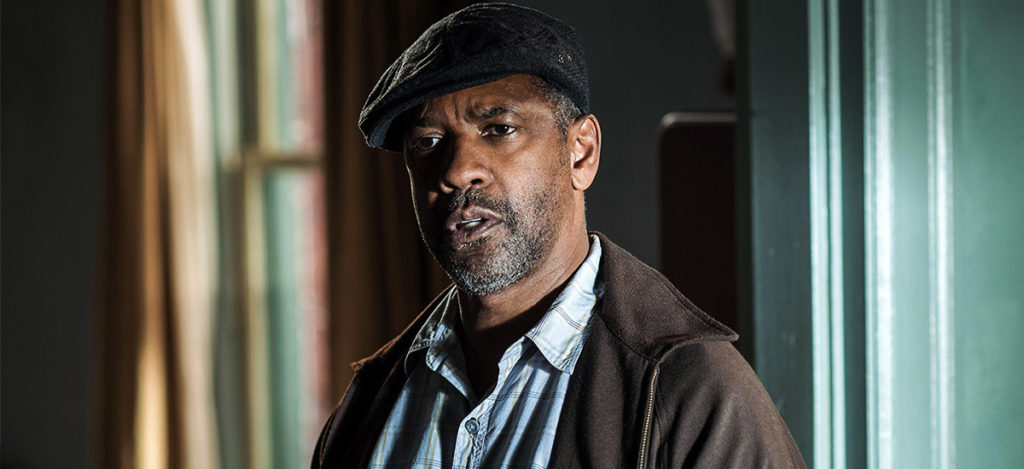
Black folks die from broken hearts all the time
*This piece is published in partnership with Breakthrough as part of By & For: Black Youth, a written series documenting the issues affecting Black girls and gender non-conforming youth.
By Amber Butts
Content Note: This essay mentions death, suicide and state violence.
“Memory is a tough place. You were there. If this is not the truth, it is also not a lie.”
Claudia Rankine
There isn’t a place to begin in this story. A place that comes and gathers, expectant and linear, solid and open, asking. Anywhere is fine.
I think about Black death often. And, what it especially means for those awaiting it, for those of us who miss our loved ones so much that we have a special place and time in our rooms marked for that particular prayer. And, what it’s like to confront that heartbreak day in and day out.
My family talks about death and dying over the dinner table and the counter, as if it is the most natural prelude to “please pass the bread”. We talk about the splitting of atoms and acorns, with the smoothest transition into the cost of funerals. We do not mention the eggshells that got stuck in the cornbread because they are not there, and we are tired. Our throats just catch like that sometimes.
When I first learned how to make salmon croquettes, my grandmother told me a story about how egg whites do their best to come back together, no matter what’s in between them. And I want to say that our bodies and memories are like that, constantly flowing and lifting to return to each other eventually. But I don’t know anything except we always say “I love you” at the end of every call. And that egg yolks don’t do the same.
As I sit with my grandmother, braiding her hair, she tells me that she is ready to join my grandfather. She doesn’t want another night of sleeping alone or to wake up another day without his smile. She says a part of her is gone and the ache is too much.
She tells us all this, multiple times a day as if she is preparing us for a battle we must heel to. And we do. We prepare, we worry, we try to make light of what she says. But she makes us promise over and over, no matter how much her memory fades from dementia. This is what she remembers, what she holds on to.
And who are we to not listen? Who are we to decide?
Our brains do not know how to make sense of grief. As we constantly attempt to reconcile the irreconcilable, to measure, process and satiate what is always felt in our bodies first, another part of us is alerted to an earlier, more accurate technology.
Within the first 30 days of a loved one dying, the chances of heart attack or stroke exponentially increase, making it fundamentally possible for a person to die from a broken heart. For Black folks especially, family members dying in close succession is not uncommon.
My great grandmother, Juanita Lowe, died on March 29th, 2010 from a stroke. Seventeen days after her death, her daughter Janice, who was her full time caretaker and friend, passed from congenital heart failure.
When our family, comrades and community members pass on, everyone feels the ripples. And though those ripples may come at different times, the impact can be detrimental, sudden and/or fatal.
On January 9th, 2020 Atatiana Jefferson’s mother, Yolanda Carr lost her battle with cancer. Atatiana was her mother’s caretaker until she was murdered by Fort Worth Police Department officer Aaron Dean in October of 2019. Atatiana’s father, Marquis Jefferson, age 58, also passed away one month after her murder.
Venida Browder, Kalief Browder’s mother, passed away from complications of a heart attack one year after her son died by suicide. Kalief was held at Rikers for three years without receiving a trial from 2010 to 2013, on the suspicion of stealing a backpack. For two of those years, Browder was locked in solitary confinement and was on suicide watch. When he was finally released, after standing trial and being interviewed dozens of times to document his suicidal ideation, Kalief learned the most efficient route of ending his life. He then acted on what he learned.
…
It is never easy to distinguish between the “natural” and unnatural deaths of loved ones while living in an antiBlack world. The conditions in which we “survive” are situational, multifaceted and traumatic. They are also often responses to the world’s attempt to snuff us out, to continue to break our hearts and our spirits.
When Eric Garner was murdered on July 17th, 2014, two months before his 44th birthday, I thought first of his family. Of the possibility of traveling on a street where your loved one was murdered in broad daylight and seeing them there, while knowing that they aren’t.
I also replay a memory of my uncle lying in the road four houses up from where we lived after crossing the street on a green light and having a car crash into the core of him, stealing his life away. I remember being consumed by grief. I remember how the bodies of my family members clenched at the same time, their/our spinal cords shortening, and the way we always looked like we were having difficulty catching our breath. And how after each death, my belly clenched tighter and tighter, becoming ulcer and ore.
The New York city autopsy report claims that Eric Garner’s cardiovascular system was compromised due to his “poor health” (read: fatphobia), and that it contributed to his loss of life.
But blaming Black folks for their murders is a regular occurrence, and hides the truth of how a world that encourages the violent imaginations of white men, especially those in power, will always ensure Black criminality and Black death. The impact of white supremacy’s insistence and responsibility in ensuring the inevitability of Black death is one that must always be recognized. Our bodies are impacted by grief, and in the midst of these violences, are seeking and procuring ways to honor the dead.
Erica Garner, eldest daughter of Eric and Esaw Garner, died three years, five months and thirteen days after her father was murdered. Erica’s unwavering commitment to holding the New York City Police Department accountable for their involvement in her father’s murder was well known and she was said to “never have recovered from her father’s death”.
After being rushed to the hospital, Erica was pronounced dead on December 30th, 2017 at Woodhull Medical and Mental Health Center in New York City. She died at the age of 27 after a severe asthma attack that then resulted in a heart attack. She was placed in a medically induced coma and suffered brain damage. The official cause of death was cardiac arrest. Erica’s two children were 8 years old and 4 months at the time of her death.
The psychological, environmental, physical and emotional consequences of the state’s investment in facilitating Black death is real and is imprinted on every Black body. I find comfort in witnessing the ways we continue to determine our healing, our fight, our lives and our memories. Grief is a connector and though I don’t have the words yet for what this all means, I trust us to continue the work it takes to usher and invite in rest, love, rage and remembrance.
“I miss my son. I miss him so much.”
Venida Browder
Amber Butts is a writer, organizer and educator who believes that Black folk are already whole. Her work centers Black children, Black mamas and Black elders. It asks big and small questions about how we move towards actualizing spaces that center tenderness, nuance and joy while living in a world reliant on our terror.
